AG Jeff Sessions will bring dedication, honor to Justice Department, says National Sheriff’s Association
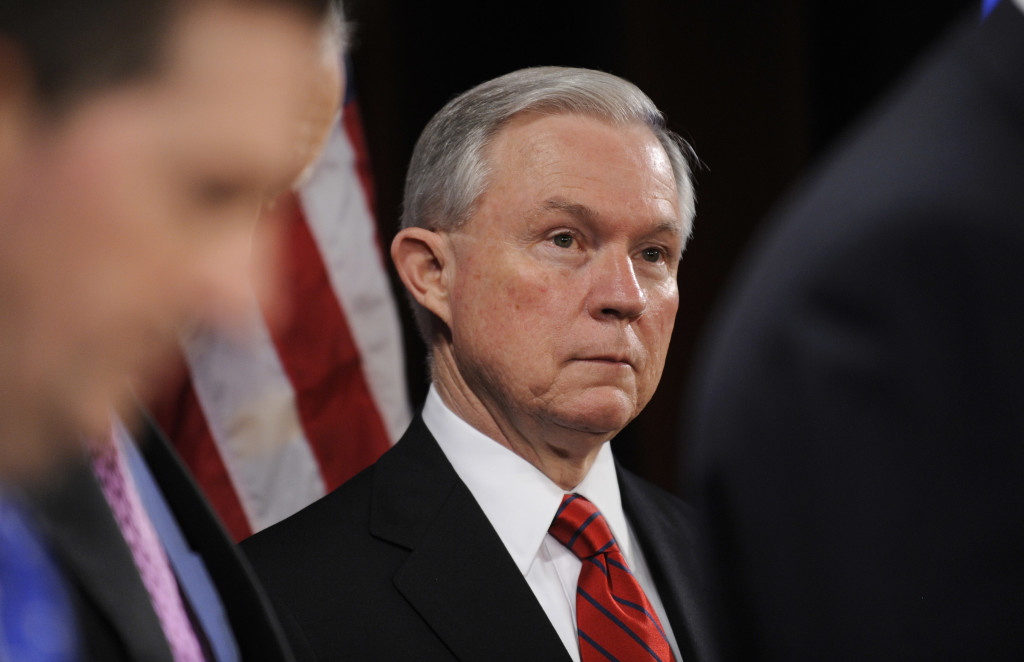
The National Sheriff’s Association is giving thumbs-up to Jeff Sessions as Donald Trump’s pick for Attorney General, saying that federal support will be a “key component” in the success of law enforcement. Writing an op-ed in The Hill, Jonathan Thompson, who serves as Executive Director of the National Sheriff’s Association, is urging the Senate to confirm the Alabama Senator “because law enforcement and the citizens they protect need his expertise, dedication and honor at the Justice Department.” Thompson writes: “Over the past few years’ law enforcement has been missing a key component to succeed in their jobs — federal government support.” While backing from the Obama administration “is lacking,” Thompson says that public support for law enforcement remains very high, and “with a new executive branch administration comes new promise.” “The Senate must confirm Sen. Sessions because law enforcement and the citizens they protect need his expertise, dedication, and honor at the Justice Department,” he adds. Sheriffs and deputies nationwide are certain they will receive the necessary support from Sessions, because Thompson says throughout the senator’s career “he has been a crime fighter who seeks justice fairly … As a U.S. attorney and Alabama attorney general, he successfully pursued and prosecuted violent criminals, corrupt politicians and white collar criminals.“ Sessions worked with both Democrats and Republicans to pass important legislation such as the Fair Sentencing Act of 2010, which reformed disparities in sentencing for drug crimes; he also helped push through the Fugitive Sex Offenders Act in 2012, which helps law enforcement track down fugitive sex offenders. He also worked across party lines to reauthorize the Victims of Child Abuse Act. “He understands that the immigration system is broken and law enforcement is stuck in the middle without a plan,” Thompson says. “Sessions agrees that jails should not be the home for Americas mentally ill and wants to work with law enforcement to reform the mental health system.” “Sheriffs and deputies wake up each day knowing their lives may be in danger to keep our communities safe and protect the rule of law,” Thompson concludes. “They look forward to having an active ally in Attorney General Sessions to support them and do whatever necessary to make America safe.” Donald Trump
Bradley Byrne: Five things to watch in 2017
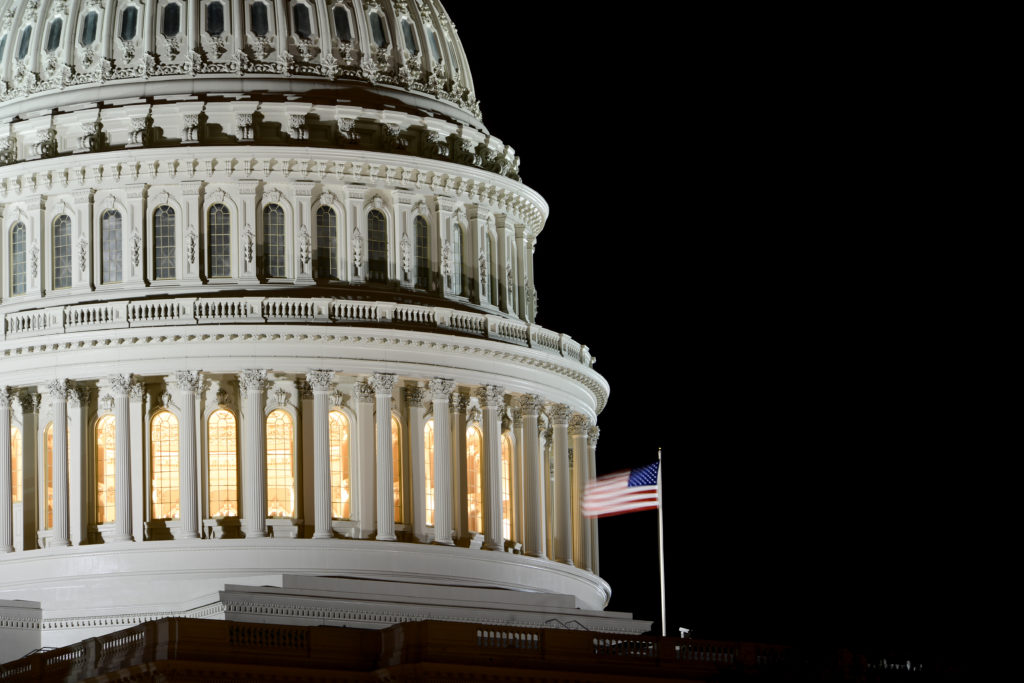
In 2017, Republicans will have control of the White House, the Senate, and the House of Representatives. This is a rare situation that has happened only 16 times the past 100 years. Under a unified Republican government, there is great potential for important reforms. Here are five areas where I hope to see progress in 2017: Health Care Relief – Far too many American families are suffering under the ill-conceived Affordable Care Act. A top priority must be to repeal this disastrous law and begin moving forward with health care reforms that lower costs, boost competition, and spur innovation. Our reforms must center on free-market principles that do not put the federal government between a patient and their doctor. Any updates to our nation’s health care law must ensure that people with pre-existing conditions have access to affordable health and strengthen Medicare for our nation’s seniors. A Stronger Military – Under President Barack Obama, our military has taken a hit and that trend must be reversed. Despite these funding cuts, we continue to ask our military men and women to do more and more. Under President-elect Donald Trump, I am hopeful we will grow our military in a way that helps project peace through strength. This includes building up our Navy’s fleet with an ultimate goal of at least 350 ships. As we grow our military, we must also focus on spurring innovation to ensure we have the most advanced technology and tools available. Regulatory Reform – Unnecessary and costly government regulations are making it harder for businesses to grow, resulting in higher costs for American consumers. These regulations impact everything from energy to agriculture to labor laws. Some of these regulations can simply be blocked or repealed by the Trump Administration. Others will require action from Congress. President-elect Trump has already suggested that he will remove two regulations for every one regulation introduced. This type of regulatory reform will go a long way toward boosting economic growth. Immigration Enforcement – Over the last eight years, the Obama Administration has consistently turned a blind eye to our nation’s immigration laws. Instead of enforcing the laws on the books, they have looked for ways around the law. Well, that will change come January 20th. Having a strong immigration enforcement system is critical to our national security, and it must be a top priority. This includes securing our border and halting the flow of illegal immigrants across the border. We must also look at other parts of our immigration system to ensure American workers are being treated fairly. A Simpler Tax Code –The current tax code is far too complicated and confusing, and I have long been an advocate for wholesale tax reform that lowers rates for American families. Tax reform should make completing your taxes as simple as filling out a postcard sized form. We should also bring down our corporate tax rates, which are among the highest in the world in an effort to spur job creation and keep businesses in the United States. Tax reform is a key part of our efforts to grow the economy. Certainly, this is not an all-inclusive list and unified Republican government alone will not be enough to achieve these reforms. Under the current Senate rules, most legislation requires 60 votes in order to pass, and Republicans only have 52 Senators. I hope Senate Democrats will agree to work across the aisle to find common ground and advance these reforms. Our top priority should always be to focus on policies that benefit the American people. By doing that, I believe we can help restore faith in government and make life easier for all Americans. • • • Bradley Byrne is a member of U.S. Congress representing Alabama’s 1st Congressional District.
Ala. Supreme Court allows wrongful-death lawsuit after miscarriage

The Alabama Supreme Court on Friday reversed a trial judge’s order that dismissed a wrongful-death claim against a woman who filed a lawsuit against an obstetrician after a miscarriage when she was five to six weeks pregnant. In the civil case, Kimberly A. Stinnett v. Karla G. Kennedy, M.D., Stinnett was suing Dr. Kennedy for the wrongful-death of her unborn child. Two days after she found out she was pregnant, Stinnett experienced abdominal cramping and fever. Kennedy was concerned that Stinnett was experiencing another ectopic pregnancy and performed a procedure to end the pregnancy. It was later discovered in the operative report, the pregnancy was in fact uterine and there was “no evidence of ectopic pregnancy.” The Justices reversed the lower court’s ruling citing a state law making it a crime to kill or harm “an unborn child in utero at any stage of development.”
Donald Trump re-calibration: First act as President – ask Congress to declare war on ISIS

In case you missed it, the U.S. has been fighting an unconstitutional, undeclared war against Islamic terrorist enemies around the globe since 9/11. Its cost has been bleeding the American treasury and has depreciated the influence of America as the believable leader of the free world. When he takes office, Donald Trump’s first act as president should be to legitimize the prosecution of this war on Islamic terrorism by heading down Pennsylvania Avenue and asking Congress to legally declare war against ISIS. Trump’s mandate from the American electorate was premised in part on using unrestrained American military power to defeat ISIS and making “American Great Again” by building back and expanding US military capabilities and reach around the world. At the same time, Trump also has promised to bring a more restrained use of American interventionism. “We wanna strengthen all friendships and seek out new friendships,” Trump said at a postelection rally in Fayetteville, North Carolina. “Rather than a rigid dogma, we’re guided by the lessons of history, and a desire to promote stability all over and strength in our land. This destructive cycle of intervention and chaos must finally, folks, come to an end.” By asking for a declaration of war against ISIS (and al-Qaida too), President Trump would deliver on his promise not only to allow the United States to use the power and military might necessary to defeat these Islamic terror groups, but to actually illustrate that he is willing to restrain his presidential power to act alone in prosecuting and defining this war. Trump would also set a mission to actually end what has been an unwinnable war. This “War on Terror” as it stands today is an endless, illegal war, one whose mission, goals and objectives have never been truly defined with a declaration of war mandated both by the U.S. Constitution and the War Powers Act. It has been an undemonstrative series of military actions in a number of different nations of no true definition or ideology to measure victory or defeat. Both our soldiers and their generals have been severely restrained by the Obama administration’s adoption of a military strategy based on weak internationalist doctrine and coalitions, political correctness defined by leftist elites and journalists, and an irrational obsession with restricting civilian casualties that rule out the extreme force necessary to carry out the destruction of enemy – and its supporters too. It’s been a half-assed, stupid way of fighting a war. At the same time, Americans have become too accustomed, even complacent, to this eternal state of war. After 9/11, we were all riled up in a very patriotic way and told to be ready and observant. But after years of fighting that has accomplished little in terms of beating the enemy that is not allowed to be defined in real terms, our government now discounts its true threat to the American people and to diminish the significance and true costs of this state of war. Sadly, while we send drones and the USAF to bomb targets in the Middle East, we have deferred to the Russians, the Saudis, and the Iranians to directly deal with ISIS, to sort out the messes in Syria and Yemen. Even worse, at home, terrorist attacks such as the shootings at Fort Hood in 2009, the Boston Marathon bombing in 2013 and the San Bernardino attack in 2015 and the recent bombing in Manhattan in September are incorrectly termed as criminal matters. Couched cynically as acts by psychologically demented individuals acting alone, these acts of war by international terrorists quickly disappear from the news cycle and the consciousness of a nation. By definitively defining the enemy, an unrestrained scope of waging war, and the cost in blood and coin Americans need to suffer to eliminate a true threat to world stability and American democracy, a declaration of war would be both a defining moment for a new Trump Administration and a needed re-calibration of how our nation is governed and addresses this threat. It would be a truly significant first step in making “America Great Again.” ___ Steven Kurlander blogs at Kurly’s Kommentary and writes for FloridaPolitics.com. He is an attorney and communications specialist living in Monticello, New York. He can be reached at kurlyskommentary@gmail.com.
Band from historically black Alabama college to march at Trump Inauguration, sparking controversy

Alabama’s own Marching Tornadoes from Talladega College have accepted an invitation to perform at the inauguration of President-elect Donald Trump, according to the Presidential Inaugural Committee (PIC). The state’s oldest private, historically black liberal arts college’s decision to participate has sparked controversy across the school’s social media sites with some criticizing the decision, while others are vocally supporting the band’s participation in the historic event. So Talladega College band playing for Donald Trump’s inauguration . How can you tarnish the legacy of an HBCU by associating it w| Trump? — Cowboys (13-3) (@RockHolyfield) December 23, 2016 Talladega College band really agreed to perform at Trump inauguration ? ? Can we just remove them from being a HBCU after this stunt ?. — Tiara ♛☺️ (@_ColorMeTee) December 27, 2016 Talladega College’s band is performing in the Trump Inaugural parade. They should play The Imperial March start to finish. — Mandela Barnes (@TheOtherMandela) January 1, 2017 We are all Americans regardless of color! Where do I donate to the Talladega Band? https://t.co/PyhC5Rkuio — Pete Riehm (@PeteRiehm) January 2, 2017 I hope the Talladega College band does go to the inaugural parade. Even if you don’t like Trump, the honor and recognition is big! pic.twitter.com/Wy2whMTNcv — Geek Alabama (@geekalabama) December 30, 2016 Congratulations to the Talladega College Band for being chosen to march in the Inaugural Parade #sweethomealabama #alpolitics pic.twitter.com/XGWxzG6gfh — Terry Lathan (@ChairmanLathan) December 30, 2016 The PIC announced Friday that Talladega College, along with 39 additional organizations — including high school and university marching bands, equestrian corps, first responders and veterans groups — are expected to make up the more than 8,000 participants in the Jan 20. inaugural parade. “People from every corner of the country have expressed great interest in President-elect Trump’s inauguration and look forward to continuing a salute to our republic that spans more than two centuries,” said PIC CEO Sara Armstrong. “As participants follow in the footsteps of our new president and vice president down Pennsylvania Avenue, they will be adding their names to the long list of Americans who have honored our country by marching in the inaugural parade.” Each branch of the United States military will be represented in the parade as well as the following groups, listed below in alphabetical order. 1st Cavalry Division Horse Cavalry Detachment – Fort Hood, Texas 1st Infantry Commanding General’s Mounted Color – Ft. Riley, Kansas Boone County Elite 4-H Equestrian Drill Team – Burlington, Kentucky Caisson Platoon, Fort Myer – Fort Myer, Virginia Cleveland Police Mounted Unit – Cleveland, Ohio Coastal Florida Police & Fire Pipes & Drums – Palm Coast, Florida Columbus North High School Band – Columbus, Indiana Culver Academy Equestrian – Culver, Indiana First Troop Philadelphia City Cavalry – Philadelphia, Pennsylvania Fishburne Military School Army JROTC Caissons Battalion – Fishburne, Virginia Frankfort High School Band – Ridgeley, West Virginia Franklin Regional High School Panther Marching Band – Murrysville, Pennsylvania Indianapolis Metro Police Motorcycle Drill Team – Indianapolis, Indiana Kids Overseas – Richmond Hill, Georgia Lil Wranglers – College Station, Texas Marist College Band – Poughkeepsie, New York Merced County Sheriff’s Posse – Hilmar, California Michigan Multi-Jurisdictional Mounted Police Drill Team & Color Guard – Ann Arbor, Michigan Mid America Cowgirls Rodeo Drill Team – New Buffalo, Michigan Nassau County Firefighters Pipes & Drums – East Meadow, New York North Carolina Vietnam Helicopter Pilots Association – Hillsborough, North Carolina NYPD Emerald Society Pipes & Drums – East Moriches, New York Olivet Nazarene University – Bourbonnais, Illinois Palmetto Ridge High School Band – Naples, Florida Russellville High School Band – Russellville, Arkansas Talladega College Band – Talladega, Alabama Texas State University Strutters – San Marcos, Texas The Citadel Regimental Band & Pipes and Summerall Guards – Charleston, South Carolina The Freedom Riders – Kersey, Colorado Tragedy Assistance Marching Unit – Arlington, Virginia Tupelo High School Band – Tupelo, Mississippi University of Tennessee Marching Band – Knoxville, Tennessee VMI Corps of Cadets – Lexington, Virginia West Monroe High School Marching Band – West Monroe, Louisiana American Veterans – National Boy Scouts of America – National US Customs and Border Protection Office of Field Operations – National Disabled American Veterans – National US Border Patrol Pipes & Drums – National Wounded Warriors – National Talladega College has not returned phone calls from Alabama Today seeking comment on the controversial decision to participate in the parade.
Medicare launches revamp for heart attacks, hip fractures

Heart attacks and broken hips cause much suffering and worry as people grow older. This year, Medicare wants to start changing how it pays for treatment of these life-threatening conditions, to promote quality and contain costs. Beneficiaries and family members may notice a new approach. Hospitals and doctors in dozens of communities selected for large-scale experiments on this front are already gearing up. The goal is to test the notion that better coordination among clinicians, hospitals, and rehab centers can head off complications, prevent avoidable hospital re-admissions and help patients achieve more stable and enduring recoveries. If results back that up, Medicare can adopt the changes nationwide. The cardiac and hip fracture experiments are the latest development in a big push under the Obama administration to reinvent Medicare, steering the program away from paying piecemeal for services, regardless of quality and cost. It’s unclear whether Donald Trump as president will continue the pace of change, slow down or even hit pause. Trump’s Health and Human Services nominee, orthopedic-surgeon-turned-congressman Tom Price, has expressed general concern that the doctor-patient relationship could be harmed by Medicare payment changes seeking to contain costs. And the Medicare division that designed the experiments – the Center for Medicare & Medicaid Innovation – is itself under threat of being abolished because it was created by President Barack Obama‘s 2010 health care law. Some outside groups, including AARP, worry that Medicare may be moving too fast and that focusing on cost containment could lead to beneficiaries being shortchanged on rehab care. Innovation center director Patrick Conway, who also serves as Medicare’s chief medical officer, is plowing ahead nonetheless. “Delivery system reform and paying for better care are bipartisan issues,” Conway said. And quality ranks ahead of cost savings in evaluating any results, he added. The cardiac and hip fracture experiments focus on traditional Medicare, which remains the choice of nearly 7 in 10 out of Medicare’s 57 million beneficiaries. The cardiac experiment involves both heart bypass and heart attack patients. The trials join similar ongoing tests involving surgery for hip and knee replacement, as well as care for cancer patients undergoing chemotherapy. In the experiments, doctors, hospitals, and rehab centers get paid the regular Medicare rates. But hospitals are given responsibility for overall quality and cost, measured against benchmarks set by Medicare. If the hospital meets or exceeds the goals, it earns a financial bonus, which can be shared with other service providers. If the hospital falls short, it may have to pay the government money. “Now your doctor and hospital are working together to make sure they are well coordinated,” said Conway. Under the old system, if a patient was discharged from the hospital after a heart attack, “they might hand you a piece of paper that said please follow up with your primary care doctor,” Conway continued. “In this model, the hospital is going to have a strong incentive to make sure you follow up.” Overall, about 168,000 Medicare beneficiaries are treated for heart attacks in a given year, while 48,000 undergo heart bypass surgery for clogged arteries and 109,000 have surgery for broken hips. Around the country, hospitals in 98 metro areas will be involved in the cardiac experiment. The hip surgery experiment involves 67 areas that are also part of Medicare’s ongoing test with hip and knee replacements. Areas in the cardiac test include Boston, as well as Akron, Ohio; Charleston, South Carolina; Fort Collins, Colorado; Utica, New York; and Yuma, Arizona. A smaller group of communities will be involved in a related experiment that pays hospitals for coordinating rehab care for heart patients. Although the benefits of cardiac rehab are widely recognized, only a small share of patients receives it. The hip fracture test includes the Miami, New York, and Los Angeles metro areas, as well as Austin, Texas; Bismarck, North Dakota; Flint, Michigan, and New Orleans. Hospitals are not happy with the changes, though doctors have generally been supportive. A big concern for hospitals is that Medicare requires mandatory participation by all the facilities in areas selected for these tests. But Conway says that’s likely to lead to even better results. The idea is that hospitals will watch each other’s performance closely, and the ones that have room to improve will try to catch the high achievers. Republished with permission of the Associated Press.
For Donald Trump, the 1980s still hold relevance
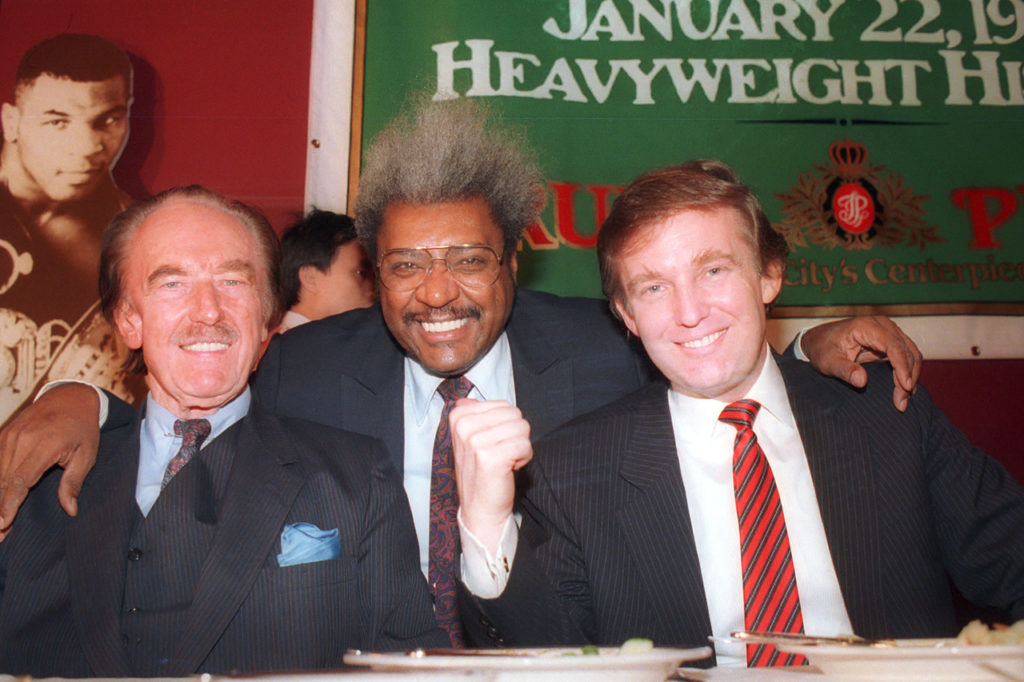
Bobby Knight. Don King. Sylvester Stallone. Many of President-elect Donald Trump‘s cultural touchstones, which he’d frequently name-drop at campaign rallies and on Twitter, were at their peak in the 1980s — the decade Trump’s celebrity status rose in New York, Trump Tower was built, “The Art of the Deal” was published and he first flirted with running for public office. The “Go Go 1980s” of New York were spurred by Wall Street’s rise. It was a brash decade in which excess was the norm and ostentatious displays of wealth and power were celebrated in pop culture and among Manhattan’s elite. And while much of what defined the 1980s has since gone out of style, Trump has seemingly internalized its ethos, which is reflected in the decor of the Trump Tower lobby and the celebrities he stood alongside during the campaign. An outer-borough New York developer trying to prove himself across the East River, Trump always sought approval of Manhattan’s ruling class and was eager to make a name for himself, according to those who tangled with him during that formative decade. “He would relentlessly promote himself in the newspapers or on TV. He knew how to get press and squash his enemies,” said Geoge Arzt, press secretary for former New York City Mayor Ed Koch, who served from 1978 to 1989. The me-first attitude that defined the 1980s “has long been a part of who Trump is,” Arzt added. In the 1980s, as Trump came of age as a public figure, he opened up a refurbished Grand Hyatt on 42nd Street, took over the long-stalled renovation of Central Park’s ice skating rink and purchased the New York-area team in the fledgling United States Football League. He fashioned himself into a regular in the gossip pages, playing the city’s tabloids off each other as he promoted his personal brand. He also took his first steps onto the national media stage, making his debut on “60 Minutes” in 1985. The long-running news magazine broadcast has continued to hold a special place in his heart. Several times at rallies, Trump invoked a “60 Minutes” segment he had just watched and he gave his first post-election interview to the show last month. That show was at its apex in the ratings in the 1980s. Time Magazine, which also wielded significant clout in the 1980s, also has remained an obsession for Trump. The celebrity businessman, who complained in recent years that he wasn’t named the magazine’s Person of the Year, received the award in 2016. He called it a “very, very great honor.” That marked his eighth time on the cover this year alone — something that Trump would brag about during campaign rallies. He has taken to giving out autographed copies of the cover to visitors, including rapper Kanye West. But while West is a current megastar, Trump mostly chose to trot out 1980s celebrities during his campaign, even if many of them had seen their star fade in the ensuing 30 years. Knight, the former Indiana University basketball coach who captured college basketball national titles in 1981 and 1987 but was later fired for attacking a student, became a favorite sidekick. He first appeared with Trump during the spring’s Indiana primary and reappeared at rallies in the Midwest during the general election stretch run. “One of the reasons I won: Bobby Knight! That’s the gold standard, right?” Trump exclaimed in August. King, the flamboyant boxing promoter who hyped Mike Tyson‘s 1980s fights, was also saluted by Trump as “a phenomenal person” despite a conviction for manslaughter. King appeared with Trump in September at a Cleveland church and stood with the president-elect last week while Trump was answering questions from the press at his Palm Beach resort. Trump has been drawn to other 1980s stars. Tyson endorsed the celebrity businessman. Actor Scott Baio, an outspoken Trump supporter, reached the zenith of his fame in the 1980s with the shows “Happy Days” and “Charles in Charge.” And on Saturday, actor Sylvester Stallone — who starred in three “Rambo” movies and two “Rocky” sequels in the 1980s — was a star guest at Trump’s New Year’s Eve bash at Mar-a-Lago, the lush Florida estate Trump bought in 1985 two years after he opened Trump Tower on Fifth Avenue in New York. Much of Trump’s political philosophy was formed in the 1980s too. In 1987 as he first floated running for president, he took out a full page ad wondering why the U.S. was “paying to defend countries that can afford to defend themselves.” His frequent depictions of inner cities as dangerous and crime-ridden seem to harken to the crack-plagued life of urban areas in the 1980s, more than the largely safer big cities of today. In “The Art of the Deal,” he voiced positions on trade he still holds today. That book, which made him a household name when it was published in 1987, also holds many of the principles that guided Trump’s business career — and, decades later, his bombastic campaign for the White House. “I play into people’s fantasies,” he wrote. “People may not always think big themselves, but they can still get very excited by those who do. That’s why a little hyperbole never hurts. People want to believe that something is the biggest and the greatest and the most spectacular.” Republished with permission of the Associated Press.
Donald Trump presidency puts California Legislature in defense mode
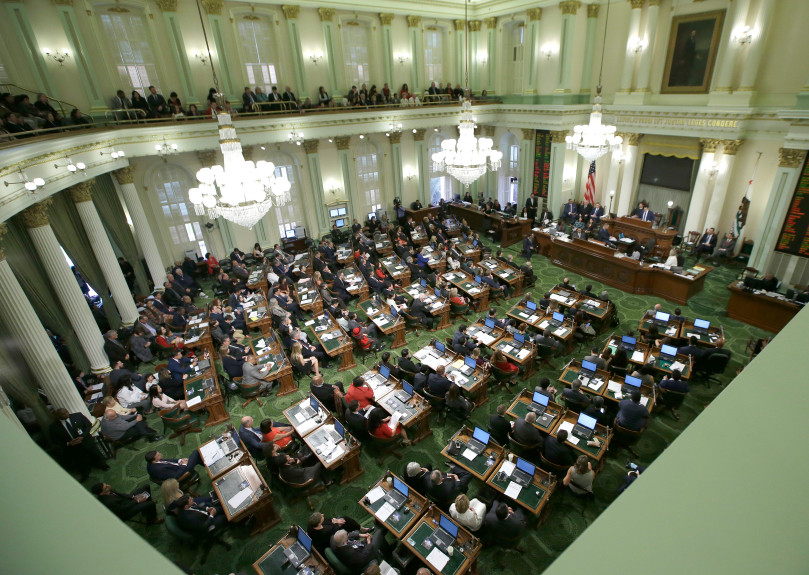
As California lawmakers return to Sacramento on Wednesday, liberal dreams of expanding safety-net benefits and providing health coverage to immigrants are giving way to a new vision revolving around a feverish push to protect gains racked up in the past. After years of pushing forward a progressive agenda, legislative Democrats will be pushing back against conservative policies from President-elect Donald Trump and the Republican Congress. Instead of expanding Medi-Cal health coverage to adult immigrants who can’t prove they’re legally in the country, Democrats are now concentrating on how to retain health coverage for those who already have it. And anti-poverty groups are focused on preventing cuts to food stamp and welfare programs rather than trying to expand them as planned. “There is so much uncertainty at the federal level, because they’re talking about some really drastic policy choices that could have a really negative impact on California,” said Scott Graves, research director for the California Budget & Policy Center, a left-leaning research group. Last year was a particularly effective one for California liberals. The Legislature extended the nation’s most ambitious climate change programs, raised the minimum wage to $15 and toughened gun laws. Lawmakers boosted overtime for farmworkers, expanded welfare benefits and enacted a sweeping array of anti-tobacco measures. This year had all the makings of continuing the trend. Democrats will arrive Wednesday with supermajorities in both chambers – enough to advance their own agenda without GOP interference if they stand united. Notably, though, Democrats took their first action as a supermajority not to advance a contentious public policy objective but to send a message to Trump. Right after they took the oath of office last month, Democrats in the Assembly and Senate suspended legislative rules to immediately approve resolutions urging the incoming administration to keep a program allowing hundreds of thousands of young immigrants who are in the country illegally to stay. While the California Legislature has broad authority to chart its own agenda, it relies significantly on federal dollars. According to the state Department of Finance, California gets $96 billion from the federal government, a figure almost as large as the state’s $122 billion general fund. Those federal funds cover a massive share of the budget for health care, food stamps, welfare and other safety-net programs. Liberals are particularly worried that the budget prepared by U.S. House Speaker Paul Ryan, R-Wisconsin, will lead to severe cuts in those programs through block grants or other methods of shifting responsibility to states, while also giving them more flexibility. “Block granting … is just not what’s in the best interests of the recipients of those programs,” said Sen. Holly Mitchell, a Los Angeles Democrat who will lead the state budget committee next year. “We’re dealing with hungry people, which we cannot ignore.” Graves noted that before the election, he hoped the Legislature would take a serious look at boosting subsidized child care and Supplemental Security Income payments for seniors and people with disabilities. That seems less likely now. Congressional Republicans also are eager to repeal President Barack Obama‘s health care overhaul, which provides $20 billion for the Medi-Cal program and private insurance subsidies. Preserving that coverage, much less expanding it to cover more people, would be extremely expensive. The California Endowment has provided millions of dollars for an advocacy campaign called Health4All to expand Medi-Cal coverage for immigrants who can’t prove they’re legally in the United States. In December, it announced a new initiative: Fight4All. The $25 million effort reflects a shift in focus from creating new rights to defending existing ones. “A whole host of areas where significant progress has been made in California in the last five or six years or so, we feel that work is now in jeopardy,” said Dr. Tony Iton, the endowment’s senior vice president. Still, conservatives in the state aren’t optimistic that Trump’s presidency will give them a reprieve from lawmakers’ persistent push to the left. California’s Legislature is “sort of like its own nation-state,” said Tom Scott, California director of the National Federation of Independent Business, a small-business advocacy organization that often is at odds with legislative priorities including labor and environmental mandates. “Quite frankly, whatever the Trump administration does, it will not stop Gov. Brown and the state Legislature from moving forward on their political agenda,” Scott said. “So I’m on one level expecting sort of business – or un-business – as usual, and I don’t see that changing.” Republished with permission of the Associated Press.
Q&A: The GOP’s path to repealing health care law
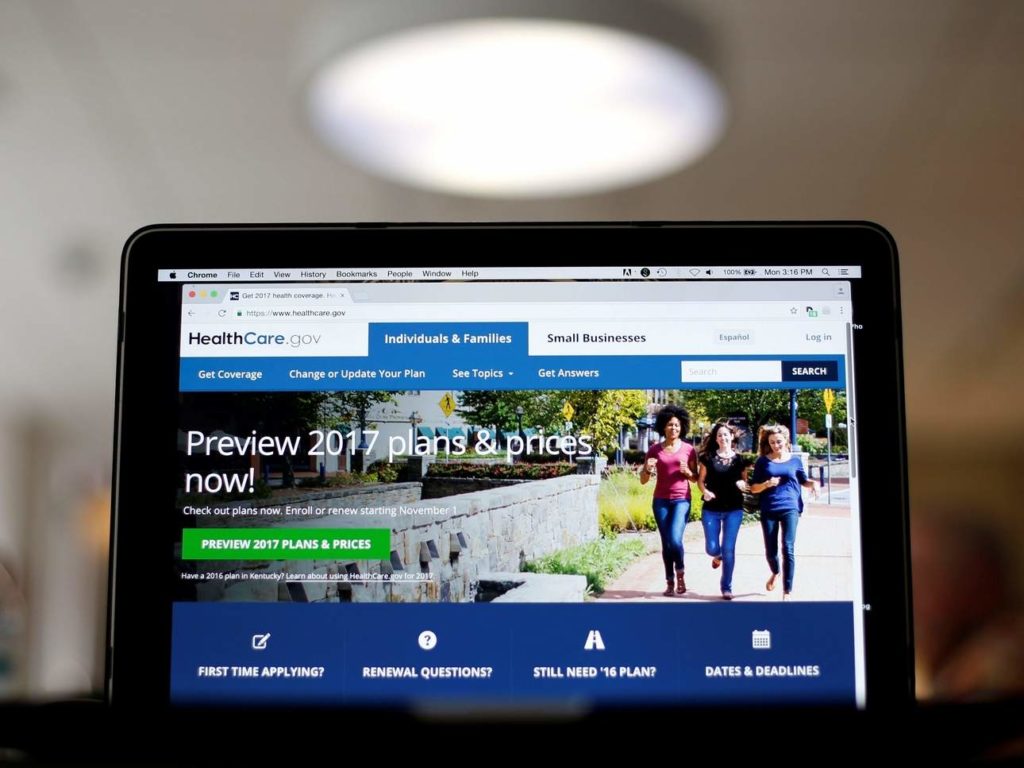
The stakes confronting Republicans determined to dismantle President Barack Obama‘s health care law were evident in one recent encounter between an Ohio congressman and a constituent. “He said, ‘Now you guys own it. Now fix it. It’s on your watch now,’” recalled GOP Rep. Pat Tiberi, chairman of a pivotal health subcommittee. “And this is a supporter.” Republicans have unanimously opposed Obama’s law since Democrats muscled it through Congress in 2010. They’ve tried derailing it scores of times but have failed, stymied by internal divisions and Obama’s veto power. With the Republicans controlling Congress and Donald Trump entering the White House on Jan. 20, their mantra of repeal and replace is now a top-tier goal that the party’s voters fully expect them to achieve – starting this week. But by unwinding the statute, the GOP would kill or recast programs that provide coverage to 20 million Americans who will be wary of anyone threatening their health insurance. And continuing Republican rifts over how to reshape the law, pay for the replacement and avoid destabilizing health insurance markets mean party leaders have a bumpy path ahead. — Q: What’s first? A: When the new Congress convenes Tuesday, Senate Majority Leader Mitch McConnell, R-Ky., has said his chamber will begin debating a bare bones budget for next year. Most significantly, that would trigger a special procedure letting Republicans repeal much of Obama’s law by a simple Senate majority. That’s big because GOP senators will have only a 52-48 edge. The debate will also be a way for Republicans to signal quickly to voters that they’re starting to erase the law, even as they save actually doing it for later. — Q: And then? A: Lawmakers will work on legislation actually repealing much of Obama’s law. The legislation is likely to erase the mandate that people buy insurance or face hefty IRS fines, which Republicans despise. Also facing elimination or reductions: taxes Obama imposed on upper-income people to finance the law, subsidies that help millions afford health care and the expansion of Medicaid health coverage to more lower-earning people. Federal aid to Planned Parenthood would be halted, reflecting GOP opposition to the right to abortion, one of the women’s health services provided by the organization. They hope to pass the bill by late spring, but its provisions probably won’t take effect for up to four years to give lawmakers time to craft a replacement. This won’t be easy. Many congressional Republicans are from states like Arizona, Nevada and Pennsylvania that have added about 10 million people to Medicaid and will oppose abandoning so many voters. Others will be nervous about voting to repeal the overall law without having replacement legislation to show constituents. Republicans also worry that during the transition to a new system, health insurers – already struggling in some states – might protect themselves by leaving some markets and boosting premiums. To ease that, GOP aides say they’re considering including some kind of stabilization fund in the repeal bill to protect insurers against losses. That remains a work in progress. — Q: Will the 20 million people now covered lose their benefits? A: Some probably will, a byproduct of reducing Medicaid coverage and dropping the requirement that individuals buy insurance. That could be partly offset by some who’d purchase less expensive policies because the bill will probably let insurers drop coverage for some of the 10 services they now must provide, such as outpatient care and pregnancies. At a briefing for reporters, top House GOP aides said the goal is “universal access” to health benefits, as opposed to aiming for coverage of all Americans. They said Obama’s law ended up with many policies that are too expensive and offer limited access to doctors, but the shift in focus to “access” suggests Republicans don’t want to be measured by the number of people actually covered. The Senate’s new minority leader, Chuck Schumer, D-N.Y., said recently that repealing Obama’s law without a replacement would mean “huge calamity from one end of America to the other.” House Ways and Means Chairman Kevin Brady, R-Texas, called claims that 20 million people will lose coverage a “big lie.” He said Republicans will provide “an adequate transition period to give people piece of mind.” — Q: What about the replacement legislation? A: Its ingredients remain unclear. Trump, who’s been vague, has proposed tax breaks to help people afford insurance, letting insurers sell policies across state lines and freeing states to decide how to spend Medicaid dollars. House Speaker Paul Ryan, R-Wis., has offered similar ideas plus transforming Medicare into a system that offers subsidies for buying policies. He’d tax – for the first time – the most expensive employer-provided health benefits. The GOP effort might involve several bills, with Republicans pushing measures through Congress as they’re ready. And it will probably take years, which would put political pressure on the GOP. “The American people will want to see change overnight,” said Rep. Kristi Noem, R-S.D. Republished with permission of the Associated Press.
GOP Congress feels it has mandate to undo Obama’s agenda in 2017

Republicans’ grip on all levers of power stands as a mandate to the GOP-led Congress, which will move swiftly to try to undo eight years of outgoing President Barack Obama‘s agenda. With Republican President-elect Donald Trump just weeks away from assuming office, GOP lawmakers plan to open the 115th Congress on Tuesday and immediately take steps to repeal Obama’s health care law. Beyond that, they’ll look at a tax overhaul, reversing Obama-era environmental regulations and other conservative priorities. Republicans will face some obstacles. House Minority Leader Nancy Pelosi says Democrats “stand ready to fight vigorously” to protect health care and other priorities, and Republicans will have to compromise with Senate Democrats to move major legislation through that chamber. A look at what the 115th Congress will be up to in 2017: — NEW MEMBERS New members of the House and Senate will be sworn in on Tuesday, the first day of the new Congress. In the Senate, five Democrats and two Republicans will be sworn in for the first time, joined by returning members who won re-election in 2016. After those members are sworn in, there will be 52 Republicans, 46 Democrats and two independents who caucus with the Democrats. The House will have 52 new members – 27 Republicans and 25 Democrats. There will be 241 Republicans in the House and 194 Democrats. — CONFIRMING A NEW CABINET Trump is sworn in on Jan. 20, and Republicans in the Senate will spend the first days and weeks of his presidency pushing to confirm his Cabinet picks. Democrats changed the rules and curbed the filibuster in 2013, making it easier for Republicans to move nominations. But even though they won’t be able to block Trump’s nominees, Democrats have pledged to fight many of them anyway, highlighting what they say is the hypocrisy of Trump’s populist message and his wealthy, corporate-favoring nominees for several posts. — REPEALING OBAMA’S HEALTH CARE LAW The Senate plans to begin repealing Obama’s health care law on Tuesday, Congress’ very first day, with consideration of a procedural measure that will shield the initiative from Democratic filibusters. Lawmakers will then spend the next few months working on legislation canceling broad swaths of the law. Likely to go are its mandate that people buy health insurance or face IRS fines, and its expansion of Medicaid coverage to more lower-earning Americans. Some elements of the repeal likely wouldn’t go into effect for two to four years. Republicans will then begin the more complicated task of building a new system. The GOP will have to craft new programs for the nation’s $3 trillion health care system and make sure insurance markets don’t collapse while the transition is under way. — TAX OVERHAUL Senate Majority Leader Mitch McConnell, R-Ky., and Speaker Paul Ryan, R-Wis., want a massive overhaul of the tax system with the goal of simplifying a complicated tax code that rewards wealthy people with smart accountants as well as corporations that can easily shift profits and jobs overseas. It would be the first major tax overhaul in 30 years. Trump has also advocated a tax overhaul, but with fewer details. He promises a tax cut for every income level, with more low-income families paying no income tax at all. — SUPREME COURT Supreme Court Justice Antonin Scalia died 11 months ago, but the Senate still hasn’t considered a replacement. That’s because McConnell blocked consideration of Obama’s nominee, Judge Merrick Garland, saying the next president should make the pick. The strategy paid off, and the Republican Senate will consider whomever Trump nominates. — MEDICARE CHANGES Ryan is the most powerful advocate in Washington for an overhaul of Medicare and a premium-support approach that would, over time, remake it into a voucher-like program that could force some seniors entering the program to buy health insurance on the open market instead of getting coverage through the traditional open-ended program. But his ideas likely will run into a political reality. Trump said on the campaign trail that he wouldn’t cut the program, and Senate Republicans haven’t been as enthusiastic either. Candidate Trump also initially promised not to cut Medicaid – the federal-state health insurance program for low-income and severely disabled people. During the campaign, Trump seemed to shift, backing “block grants” that limit federal funding. — SOCIAL SECURITY Like Medicare, some House conservatives have said they want to overhaul Social Security and slow the program’s growth to curb spending. But Trump has said he doesn’t want to touch those programs, and Ryan told CBS’ “60 Minutes” in December that he has no plans to change Social Security. — REVERSING REGULATIONS Republican leaders have complained throughout Obama’s presidency about burdensome regulations, a theme Trump used frequently during the campaign as well. GOP lawmakers now want to undo some of Obama’s regulations and executive orders, using the Congressional Review Act, a rarely invoked procedure. Many of the regulations they are targeting are rules put in place by the Environmental Protection Agency, including the Clean Power Plan to cut carbon pollution from coal-fired power plants, a clean water rule that has drawn the ire of farmers and another rule imposed in December to protect nearby streams from coal-mining debris. — INFRASTRUCTURE Trump made rebuilding the nation’s aging roads, bridges and airports a major part of his job-creation strategy in the presidential race. But those plans appear to have fizzled, somewhat, as GOP leaders have questioned the spending. Republished with permission of the Associated Press.


